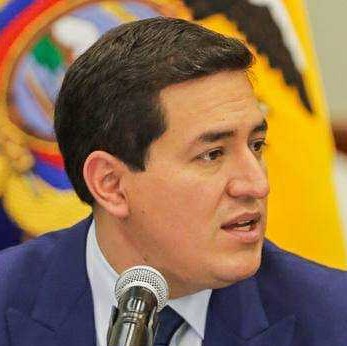November 01, 2022
Kawsachun News
Our goal should be that on January 1, 2023, during Lula’s inauguration in Brasilia, a treaty for a new UNASUR will be signed. But for this to happen, we barely have two months to carry out the preparatory work and reach the key agreements necessary. The legal path is being resolved thanks to a detailed technical-legal study by my colleague Guillaume Long, and Natasha Suñé.
Additionally, we must activate the Bank of the South, sign the constitutive treaty of the Central Bank of the South, and launch a regional currency — in addition to the continent’s national currencies — as president-elect Lula has proposed. The immediate aim is for this integration to be felt by citizens. UNASUR’s payment systems would be harmonized so that interbank transfers could be made to any account within the region in real time, and could even be carried out from a cell phone.
We cannot cede this historic window of opportunity to the bureaucratic inertia of foreign ministries. Progressive presidents must create a direct channel of communication between themselves, designate an official to visit the countries of the region to detect bureaucratic obstacles and find smart solutions, and demand — as a group — weekly accountability. The political will is there; there is no time to waste.
We can extend this window of opportunity if Latin America takes initial steps for the configuration of a new regional financial architecture that provides a respite for countries like Argentina. The opportunities are clear and call for immediate action. First, the election of the next president of the Inter-American Development Bank must be postponed until January; a candidate proposed by the outgoing far-right Brazilian president, Jair Bolsonaro, should not be allowed to take over this institution. Second, collective action must be promoted to retroactively achieve the cancellation of unfair and harmful surcharges imposed by the International Monetary Fund (IMF). Third, Latin America — together with Africa — must seek agreement with the United States on an extraordinary issuance of Special Drawing Rights (SDRs) from the IMF. Fourth, the region must recycle its SDRs, using them to help finance highly indebted countries like Argentina. Fifth, Bank of the South delegates should be designated by South American governments so that the bank’s initial operations can begin. Sixth, UNASUR must help ensure that at least part of the capital that has fled to the US returns to its countries of origin, applying Article VIII.2.b of the IMF’s Articles of Agreement, which designates illicit financial flow deposit contracts as unenforceable. Seventh, and no less important, UNASUR member countries must demand a collective seat at the G20, as the African Union is on the verge of achieving.
A key step for Lula would be to undo the de facto privatization of the Central Bank of Brazil that Bolsonaro implemented, and to realign the bank with its mission to advance development, integration, and democracy. It will be very difficult to accomplish the goals of hunger eradication and reindustrialization that the Brazilian people need, and voted for, if Brazil’s central bank is constantly opposed to the policies needed to implement these goals.
While executive action is needed, this wave of regional integration cannot be confined to the presidential level; it must be a true integration of peoples. This implies seeking the deep participation of social movements throughout the region, but also and above all, realizing immediate and tangible benefits for citizens. It also entails giving preferential treatment to smaller countries. Lula’s leadership will be crucial to bring together countries with different ideological orientations.
The integration of peoples also means we must establish a massive student exchange program so that young people in Latin American public education can study for a semester or a year in another country in the region. The goal should be ambitious: one million young people participating in student exchanges in the next year. This will be the engine of integration.
Simultaneously, a cultural commitment to integration must be launched. We could have a regional contest among schools for what the UNASUR flag should look like. We could convene another regional contest to decide what the UNASUR anthem will be, summoning musicians, writers, and poets.
President Lula, please designate your special envoy for regional integration and create that channel of communication now. There is no time to lose.






